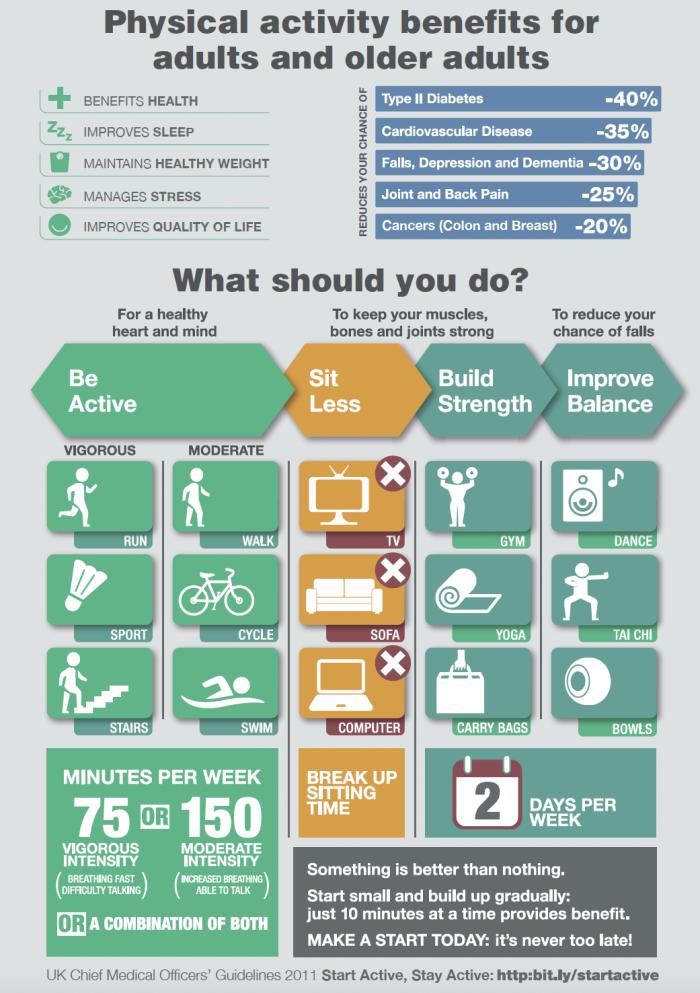Rotator cuff
Dealing with Rotator cuff related shoulder pain
Being active
Prolonged rest can make shoulder pain worse by weakening the area, which slows progress. Getting back to normal activities, even if it’s sore at first, can help speed your recovery.
Research shows that general exercise, like walking or cycling, can support healing. There’s no one-size-fits-all approach, so try different activities that you enjoy and feel comfortable doing, such as brisk walking, cycling, or aqua-aerobics.

If you are local to Sheffield and you would like support to increase your physical activity, then you can
- Self-refer to Move Well for personalised support and access to a wide range of physical activity opportunities, tailored to your specific needs and preferences.
- Find sport, leisure and activity groups in your local area.
- For more activity tips, visit our physical activity page under the wider health section of the website.
Your lifestyle
A healthy body speeds up recovery. A balanced diet, regular activity, not smoking, and maintaining a healthy weight all help. Small lifestyle changes can improve recovery and reduce future pain. For more on healthy lifestyle, check out our Wider health section.
Heat or Ice treatment
Heat packs
A warm pack can help ease muscle tightness and pain. Use a microwaveable wheat bag or hot water bottle wrapped in a towel for 15-20 minutes, 2-3 times a day. Avoid using heat on swollen areas.
Ice packs
Ice can numb pain. Apply an ice pack (or frozen vegetables wrapped in a towel) for up to 10 minutes, 2-3 times a day.
Pain medication
Pain medication can help you stay mobile. Consult your GP or pharmacist for advice.
Your action plan
This tendon pain leaflet, created by specialist physiotherapists, includes an action plan you can tailor to your own needs and goals.
Further Treatment
Physiotherapy
Most people recover from rotator cuff pain on their own, especially if they stay active and continue with their normal daily activities. Short periods of rest are fine, but it’s important to get moving again as soon as possible.
However, some people may benefit from more tailored treatment, such as physiotherapy. Physiotherapy typically focuses on active recovery with personalised exercises. While recovery times vary, it can take 3-6 months of consistent effort to see significant improvements. If you need extra support, a physiotherapist can guide you through a plan to help you recover fully.
Steroid injections
In some cases, a steroid injection may provide short-term pain relief for severe pain. However, it’s not a long-term solution, as repeated use can weaken the tissue over time.
Surgery
Surgery carries risks, but the vast majority of people improve with conservative treatment. Physiotherapy and exercise rehab have been shown to be more effective than surgery for most rotator cuff issues. Your healthcare professional can guide you through this option.